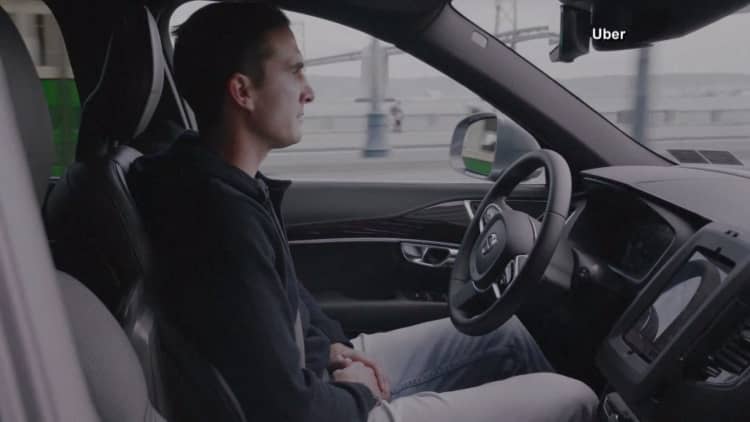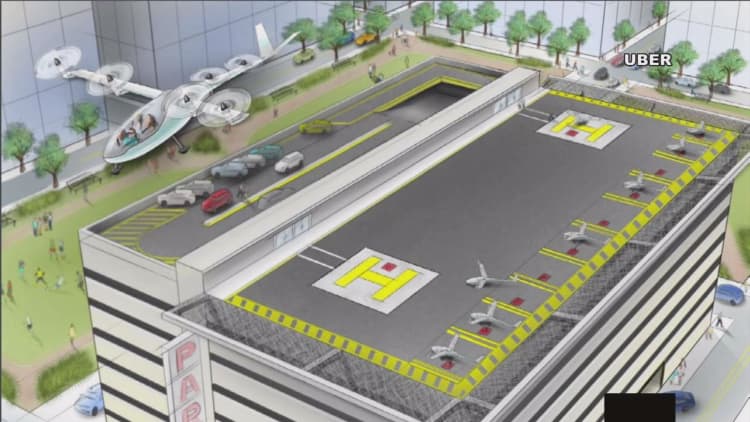
Driverless taxis are set to totally transform the landscape of mass transit systems, according to a study.
Self-driving taxi services – such as those Uber has tried to roll out in the U.S. – could offer fares at a fraction of the cost of those offered by public transport networks today, UBS said in a research note.
UBS researchers said that the autonomous vehicles, known as "robotaxis," could be introduced in the next few years.
"The shift towards electric and autonomous vehicles, combined with intensifying competition, should reduce the fee charged to passengers by as much as 80 percent compared to today," the authors of the report said Friday.
"Within the next few years, the technology will be available to make robotaxis a reality. In this new paradigm, owning a private car will cost almost twice as much as using robotaxis."

Regulators would also eventually warm to self-driving taxi fleets, researchers said, adding that autonomous cars would offer wider access to mobility, save households around 5,000 euros ($5,908) a year, and reduce the number of car accidents.
Self-driving cars have been involved in a number of accidents, however. In February, one of Google's self-driving cars caused an accident in California. And in March, Uber pulled its driverless taxi fleet from the streets of Arizona, Pittsburgh and San Fransisco after a crash in Arizona involving one its autonomous vehicles.
A number of tech giants have tried to accelerate the introduction of self-driving cars to the market. In the heat of the competition, Google's self-driving car company has even taken Uber to court, alleging that the latter stole trade secrets related to its technology.





